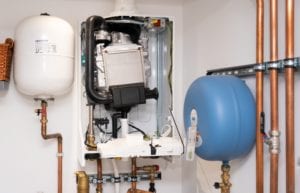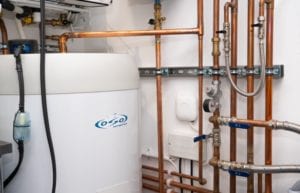
It’s the thing we all dread isn’t it. We just want our boilers to work and not give them a second thought.
But the fact is that an inefficient or obsolete boiler can cost us far more to continue to run than replacing it.
Every boiler needs to be serviced every twelve months to extend its efficiency and life as far as possible. But even with annual services every boiler will eventually show signs its ready to be replaced.
So, how would you know when the time arrives? Here are the tell tail signs.
1. Noise
Every boiler and heating system will make some noise now and again. However, if these noises change or get louder, it could be a sign you need to contact your engineer.
Tapping sounds are quite usual in older heating systems. They can indicate that there is a build-up of ‘sludge’ in the system. No need to be overly concerned about this one though as it can be sorted out by your engineer flushing out the system.
More serious sounds include humming, vibrating or banging in the system. These indicate a more serious fault that will only get worse if you don’t get your engineer to have a look at it for you.
2. Breakdowns
If your boiler is being serviced annually but you are experiencing the need to call out your engineer once or twice a year, on top of the service, then it could be a sign your boiler has seen its best days.
3. Age and Replacement Parts
As with all technology, the world moves on over a number of years. If your boiler is over ten years old, then the chances are your engineer will have trouble sourcing parts for it and it’s time to consider a new model. If parts are not readily available any longer your boiler model is obsolete and so if a serious breakdown should occur, the likelihood of parts being available to repair it is low. Better plan the replacement than be left with no hot water or heating suddenly.
4. Increasing Costs of Bills
If your bills start to increase, its not necessarily just the price of fuel. Older boilers work at a much lower efficiency level than new A Grade models. An A Grade boiler should run at a minimum of 90% efficiency. However, a G Grade model will be running as low as 70%. According to the Energy Saving Trust this could be the difference of approx. £200 per year in your fuel bills.
5. Smell
If your boiler smells eggy, you have a leak. It is sulphuric acid you are smelling. You must turn your boiler off immediately and call your engineer.
6. Flame
Should you notice that your flame in the boiler is not burning a bright blue anymore but is more yellow or orange, this indicates a serious fault and you need to call your engineer.
7. Heating Not Working Well
If your radiators are struggling to get as warm as they should, or you are regularly having to adjust the pressure on your boiler, this could be a sign that it has seen its best days and is ready for boiler replacement.
So, I need a new boiler. Which one do I choose?
There are three main types of boiler on the market:
- Combination Boiler (also known as a Combi Boiler),
- Conventional Boiler
- System Boiler
A combination boiler is compact and produces hot water and heating. Combi boilers heat water from the mains on demand. When you turn on the hot tap, the boiler fires up and hot water is delivered straight to the tap.
You do not need space in your loft for a water tank, or a cupboard to house a hot water cylinder and this makes a combi boiler ideal for small to medium sized homes where space is at a premium. Many models can be sited within a standard kitchen unit!
Combi boilers are energy efficient and cost effective as water is heated only when you need it rather than heated and stored in a cylinder. These models are often straightforward and quick to install.
 A conventional boiler is great where a lot of hot water is needed at the same time. These boilers need to be connected to a water tank to maintain the central heating water level and cylinder to produce the stored hot water.
A conventional boiler is great where a lot of hot water is needed at the same time. These boilers need to be connected to a water tank to maintain the central heating water level and cylinder to produce the stored hot water.
These boilers are ideally suited to homes that already have a traditional heating system installed. This is because sometimes older systems are unable to cope with the higher water pressure delivered by combi or system boilers. Regular boilers are frequently installed in houses with low water pressure.
System boilers directly heat your central heating system and produce hot water to be stored in a cylinder. They work like a conventional boiler but take their water from the mains water supply. Great for homes with two or more bathrooms!
So how do you choose?
Well, there are four main things to consider:
- How many people live in the property?
- How many bathrooms are there?
- Do you have loft space for a tank or cupboard space for a cylinder?
- How many radiators do you have?
If you only have one bathroom and so hot water is only likely to ever been needed in one room at any time, then a combination boiler is perfect for you. Because it heats water on demand, only using one tap for hot water at any time means it can function to its best.
However, if you have a number of bathrooms which are all likely to be used at the same time in a busy household then a conventional boiler may be the best system for you, as long as you have the space for a water tank and cylinder.
If your property is large and has a high number of radiators required to heat it through, then a system or conventional boiler will be required to be able to cope with demand.
If in any doubt about what the best boiler would be for you, simply ask us by getting in contact with one of our team on 01302 272 528. We are more than happy to discuss your options with you and find the perfect fit.